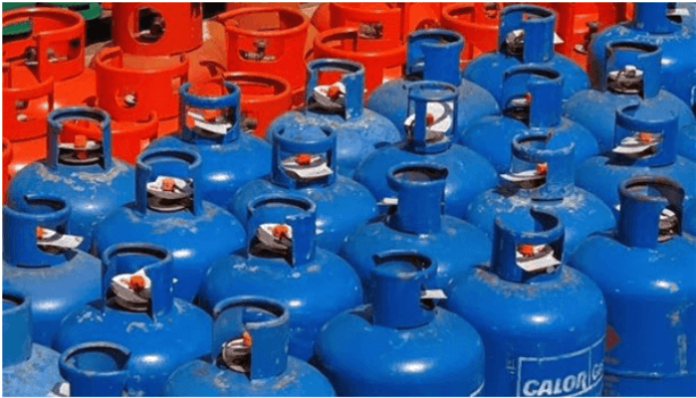The average price of a 5kg cylinder of Liquefied Petroleum Gas (LPG), commonly called cooking gas, increases to N6,915.69 in October 2024, reflecting a 3.32% rise from N6,699.63 recorded in September, according to the National Bureau of Statistics (NBS).
Year-on-year, cooking gas prices jump by 51.58%, climbing from N4,562.51 in October 2023 to N6,915.69 in October 2024.
North-East Leads in Cooking Gas Costs
The North-East records the highest average price for cooking gas, with residents paying N7,319.03 for a 5kg cylinder. In contrast, the North-West posts the lowest regional average at N6,703.95, which is below the national average.
State-by-State Breakdown
Borno emerges as the state with the highest price for refilling a 5kg cylinder at N7,939.29, followed by Yobe at N7,580.00 and Benue at N7,578.00. Katsina reports the lowest average price at N6,270.00, followed by Zamfara at N6,410.71 and Delta at N6,427.78.
12.5kg Cooking Gas Prices
The average price for refilling a 12.5kg cylinder of LPG rises by 2.58% month-on-month, increasing from N16,313.43 in September 2024 to N16,734.55 in October 2024. Year-on-year, the price soars by 58.68%, from N10,545.87 in October 2023.
Rivers State records the highest average price for a 12.5kg cylinder at N17,895.00, followed by Osun at N17,739.06 and Benue at N17,731.25. Katsina reports the lowest price at N14,725.00, followed by Nasarawa at N15,390.55 and Adamawa at N15,474.21.
Regional Comparison
The South-South region reports the highest average price for refilling a 12.5kg cylinder at N17,114.67, followed by the South-East at N16,906.19. The North-Central region records the lowest average price at N16,411.19.
Impact of Rising Prices
The continuous increase in cooking gas prices places additional pressure on households already struggling with inflationary costs in food and transportation. Over the past year, these persistent hikes risk forcing low-income families to switch to firewood or other harmful alternatives.
This trend could undermine efforts to transition households from polluting fuels to cleaner energy sources, posing challenges to achieving environmental and public health goals.













